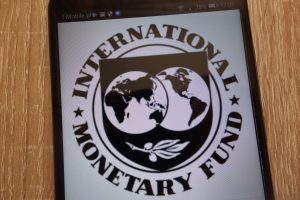The International Monetary Fund slammed Pakistan’s government on Thursday over its proposal for the new annual budget, saying it failed to implement a more fair tax system in the draft.
The harsh criticism by Esther Perez Ruiz, IMF’s representative for Pakistan, raised new concerns about the success of months-long talks between the cash-strapped Islamic nation and the lender over a stalled bailout tranche.
However, Perez Ruiz also said the IMF was offering to “work with the government in refining its strategy” for the budget.
The government in Islamabad last week presented the budget in the National Assembly, or lower house of the parliament, for the next fiscal year, starting July 1. The draft also introduced a new tax amnesty scheme and skipped some of the anticipated taxes.
The proposal was likely an attempt by Prime Minister Shehbaz Sharif to avoid anti-inflation protests and bring relief to the poorest people, with an eye toward general elections later this year.
However, it also envisages an up to 35 percent increase in salaries for government employees, drawing criticism as experts questioned how the administration would generate resources for development projects and salaries at a time when the fiscal deficit was widening to an alarming level.
Lawmakers are expected to debate and vote on the budget sometime later this month.
According to Perez Ruiz, the Pakistani government is missing “an opportunity to broaden the tax base in a more progressive way, and the long list of new tax expenditures reduces further the fairness of the tax system and undercuts the resources needed for greater support for vulnerable” people.
Pakistan had agreed with the IMF on the revival of a $6 billion bailout package, originally signed in 2019 by former Prime Minister Imran Khan. His government was ousted in a no-confidence vote in the parliament in April 2022 and was succeeded by Sharif’s Cabinet.
Perez Ruiz also said the new tax amnesty announced in the budget proposal runs against the IMF program’s “conditionality and governance agenda and creates a damaging precedent.”
Pakistan has only two weeks left to meet the IMF’s conditions to qualify for the much-needed $1.1 billion tranche, on hold since November.
“Pakistan is still in talks” with the IMF, a visibly annoyed Finance Minister Ishaq Dar said following Perez Ruiz’s statement.
Pakistan is grappling with one of its worst economic crises amid higher food costs and an alarming annual inflation of nearly 30 percent while the weekly inflation last month was close to 45 percent. It is also still struggling with the aftermath of last summer’s devastating floods, which killed more than 1,700 people and caused a staggering $30 billion in losses.
Also, Thursday, the government in southern Sindh province, one of the worst affected by the floods, braced for Cyclone Biparjoy after it made landfall in neighboring India and was expected to reach Pakistan within hours. The government said 73,000 people had been evacuated so far from the danger areas in the cyclone’s path.

































